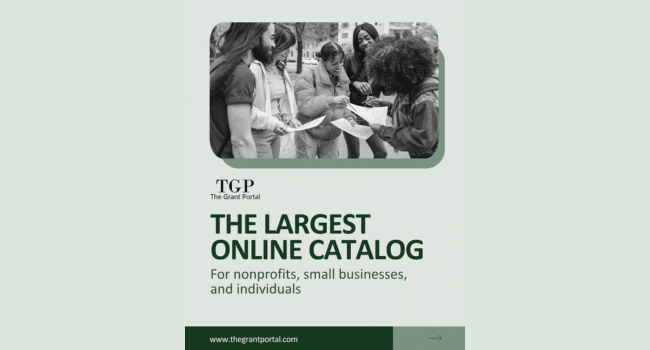Table of Contents
Nonprofits across Texas play a crucial role in strengthening communities, advancing education, supporting health initiatives, and protecting the environment. As one of the largest and most economically diverse states in the nation, Texas offers a wide array of grant opportunities from local foundations, state agencies, corporate donors, and online databases. For organizations seeking long-term sustainability, understanding where and how to find the right grants is essential.
Below is a detailed overview of the best grant sources for Texas nonprofits and proven strategies to improve funding success.
Community Foundations: Strong Regional Partners in Philanthropy
Community foundations are among the most active grantmakers in Texas. These institutions manage charitable assets and distribute millions of dollars annually to local nonprofit organizations addressing key issues such as housing, education, public health, and community development.
The Dallas Foundation is one of the state’s most established community foundations, supporting programs that promote economic security, education, and neighborhood revitalization. The Greater Houston Community Foundation offers grants that strengthen local nonprofits through targeted initiatives and donor-advised funds, while the Austin Community Foundation funds projects that advance equity, economic opportunity, and community innovation.
Smaller community foundations across the state, including those in San Antonio, El Paso, Lubbock, and the Rio Grande Valley, also provide important funding to grassroots organizations. These regional funders often prioritize programs that serve local populations, particularly in areas such as food access, youth development, and mental health services.
To succeed with community foundation grants, nonprofits should clearly define measurable outcomes, highlight community collaboration, and attend foundation workshops or information sessions to learn more about funding cycles and focus areas.
State-Level Grants and Texas Government Programs
The State of Texas offers a wide range of grants through its various agencies and departments. Many of these programs are funded by state budgets or federal pass-through dollars and are available to nonprofits that serve statewide or regional needs.
Key agencies offering grants include the Texas Department of State Health Services, the Texas Commission on Environmental Quality, the Texas Education Agency, and the Office of the Governor’s Criminal Justice Division. These grants support programs in healthcare access, education improvement, public safety, environmental conservation, and community development.
The Texas state grant portal provides a centralized way for organizations to locate current funding opportunities. Because government grants often require detailed reporting, compliance documentation, and a clear evaluation plan, nonprofits should allow adequate time for preparation and ensure they have strong administrative systems in place before applying.
For organizations that have the capacity to manage large-scale programs, state and federal grants can provide stable, multi-year funding that supports long-term growth.
Arts and Cultural Funders
Texas has a vibrant arts and culture community supported by both public and private funders. The Texas Commission on the Arts offers multiple grant categories, including those for arts organizations, community outreach, and arts education. These programs help fund performances, exhibitions, festivals, and cultural projects across the state.
City-based arts agencies, such as those in Houston, Dallas, Austin, and San Antonio, also provide grants for local artists and cultural institutions. These funders emphasize accessibility, diversity, and community engagement.
Private arts foundations contribute additional funding, often supporting innovation, youth engagement, and cross-cultural programming. Nonprofits seeking arts grants should demonstrate strong community participation, measurable outcomes, and alignment with cultural inclusion goals.
Specialized and Thematic Foundations
Texas is home to many private and corporate foundations that target specific areas such as healthcare, education, the environment, and social innovation.
Health-focused foundations, including hospital and medical research endowments, often support projects addressing public health, behavioral wellness, and access to care. Environmental foundations fund initiatives related to water conservation, sustainable agriculture, and renewable energy.
Corporate philanthropy is especially strong in Texas, where major companies in the energy, technology, banking, and manufacturing sectors maintain active charitable foundations. These corporate funders typically support community development, STEM education, and workforce readiness programs.
Nonprofits that build relationships with corporate foundations can often secure multi-year commitments, matching donations, or in-kind contributions that strengthen their operations. To be competitive, proposals should include clear performance metrics and demonstrate alignment with corporate social responsibility goals.
The Grant Portal: A Comprehensive Research Resource
For nonprofits that want to efficiently explore funding opportunities across Texas and beyond, The Grant Portal is a valuable research tool. It consolidates thousands of available grants from public agencies, private foundations, and corporations into one searchable database.
Nonprofits can search The Grant Portal by location, funding type, or focus area to identify programs that best fit their mission. The platform also allows users to manage deadlines, save grant profiles, and track application progress.
The Grant Portal is particularly useful for small and mid-sized nonprofits that may lack full-time grant writers or development staff. By combining The Grant Portal’s search capabilities with direct outreach to Texas-based funders, organizations can maintain a consistent funding pipeline and improve their chances of long-term success.
Practical Tips for Grant Success
- Research thoroughly. Study each funder’s mission, guidelines, and history of grantmaking before applying.
- Customize your proposals. Tailor every application to align directly with the funder’s stated priorities.
- Emphasize measurable impact. Use data and clear metrics to show how your program benefits the community.
- Build relationships. Attend funder events and maintain contact with program officers for future opportunities.
- Plan for sustainability. Demonstrate how your organization will continue the project after the grant period ends.
Conclusion
Texas offers a thriving philanthropic landscape filled with opportunities for nonprofits committed to positive change. From regional community foundations and state-administered programs to arts funders, corporate philanthropies, and research tools like The Grant Portal, there are countless avenues for securing essential funding.
Nonprofits that invest in building strong relationships, crafting clear and compelling proposals, and tracking their results will stand out in Texas’s competitive grant environment. With preparation, persistence, and strategic outreach, organizations across the state can secure the financial support they need to expand their missions and create lasting impact for the communities they serve.
